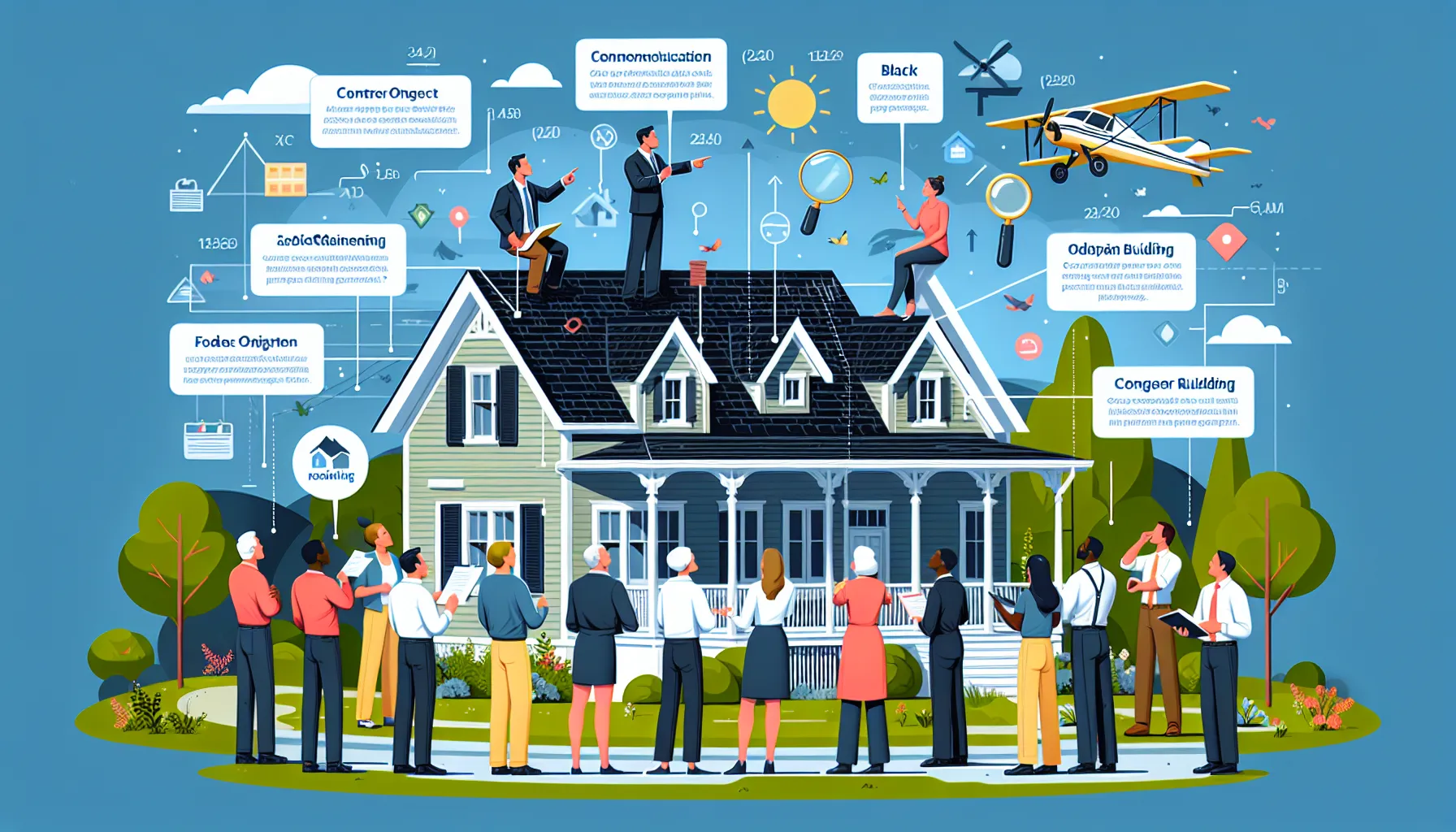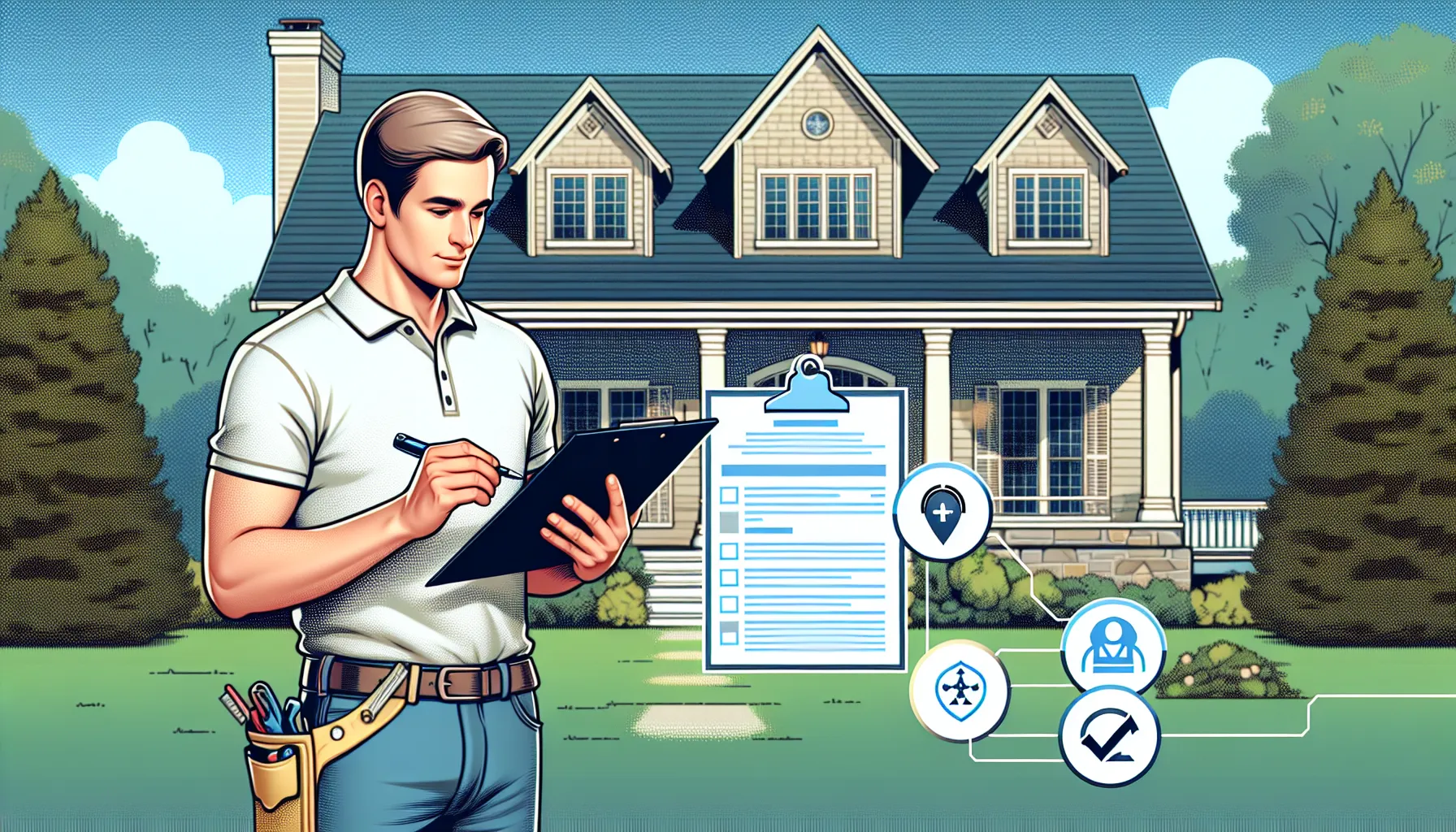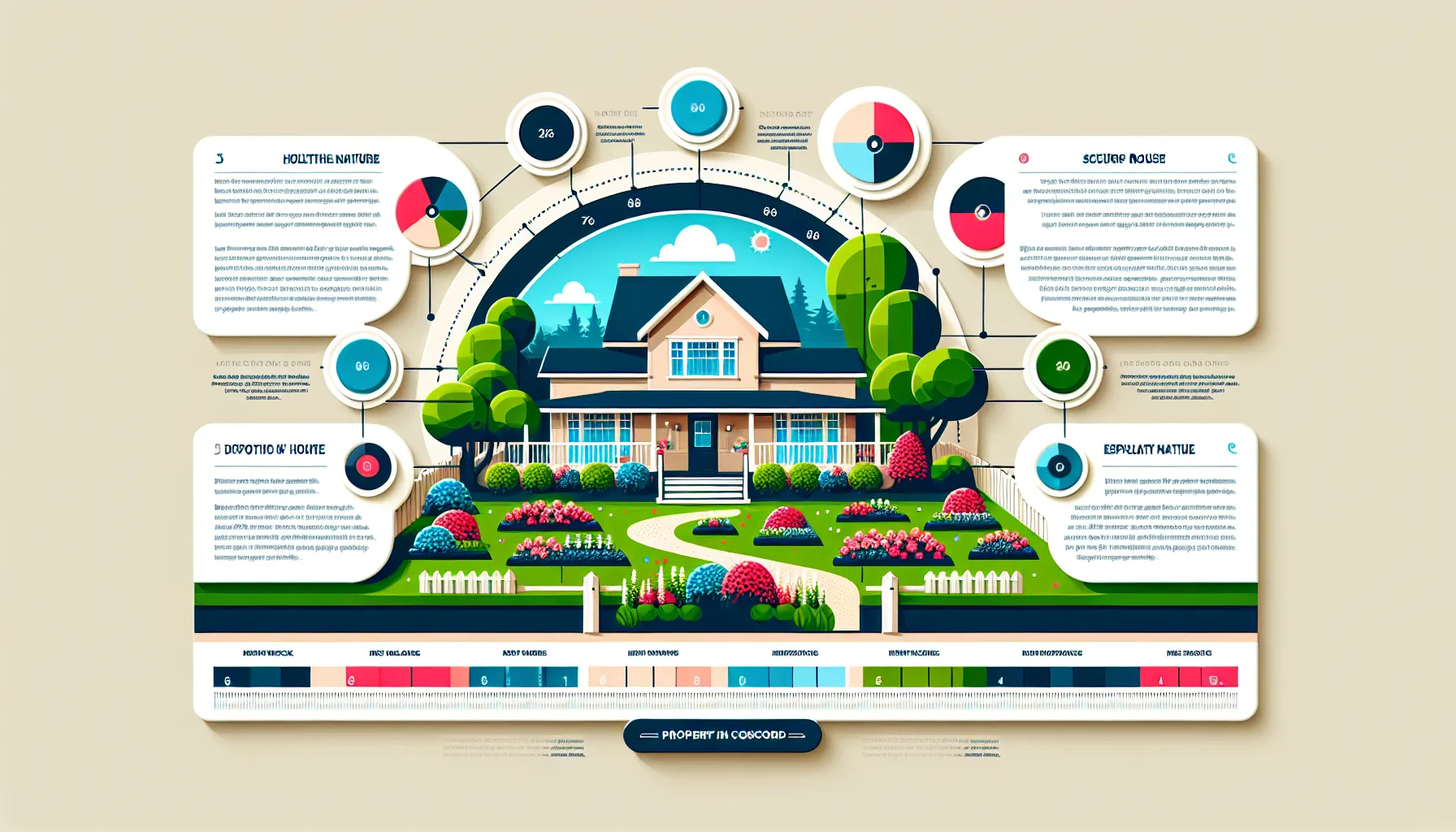Key Takeaways
- Establishing a property maintenance budget in Concord helps prevent financial surprises and supports long-term property value.
- Key cost factors include local climate, property age, compliance requirements, and both routine and unexpected repairs.
- Allocate funds for regular inspections, emergency repairs, and professional fees to ensure comprehensive coverage.
- Use digital maintenance management tools and work with reliable local service providers for more efficient budgeting and cost tracking.
- Regularly review and adjust your maintenance budget to reflect actual expenses and avoid common pitfalls like underestimating repairs or delaying minor fixes.
- Prioritizing essential maintenance tasks and tracking expenses by category leads to better decision-making and satisfied tenants.
Managing a property in Concord means balancing comfort for tenants and protecting your investment. I know how easy it is to feel overwhelmed by the costs of repairs, insurance claims, and routine inspections. Even small projects can add up quickly if you’re not careful with your budget.
Have you ever wondered how much you should set aside each month for maintenance? Or which expenses you might be overlooking? Many property owners face these same questions. Understanding the typical fees—like 7% of monthly rent for management or $75 for annual inspections—can help you plan with confidence. Let’s look at how a thoughtful budget can keep unexpected costs from catching you off guard and help your property thrive.
Understanding the Importance of a Property Maintenance Budget in Concord
Setting up a clear property maintenance budget in Concord lays the foundation for reliable property management. I notice many owners wonder how to allocate funds while keeping tenants satisfied and investment returns consistent. Have you ever found yourself caught off guard by unplanned fixes or maintenance bills?
Unexpected expenses often happen with even the most carefully managed rental properties—broken appliances, weather-related damage, urgent repairs. By budgeting for repairs, inspections, and occasional projects, I help prevent financial surprises.
Tracking typical costs creates predictability. For example, semi-annual or annual inspections might cost $75 each. Repairs and home improvement projects regularly run at around 7.5% of the rental income. Closing out a property or claims oversight generally costs about $100 each. Knowing these averages allows me to set aside the right amount each month and avoid financial shortfalls.
Planning helps me make maintenance decisions quickly, instead of delaying work that might lead to bigger issues. Thinking about maintenance in advance also supports positive relationships with tenants—longer lease renewals and fewer complaints usually follow good upkeep. What’s your experience with setting aside funds for regular upkeep or emergency repairs?
A well-structured maintenance budget also helps when dealing with insurance. Oversight of insurance claims usually carries a set fee, like $100 per claim, so I factor that into annual planning. Keeping these figures in mind means I stay ready for any event that could affect a property’s condition.
Budgeting for property care in Concord isn’t only about avoiding financial strain. It also streamlines decision-making and supports the long-term value of each asset. How do you approach saving for maintenance, and which cost areas catch you off guard most often?
Key Factors Influencing Property Maintenance Costs in Concord

Property owners in Concord often wonder why maintenance budgets can vary from year to year. Several elements influence these expenses, making it helpful to identify which factors matter most. Are you curious about what might impact your next repair bill or inspection cost?
Local Climate and Environmental Considerations
Weather patterns in Concord have a direct impact on maintenance needs. Heavy rainfall might lead to roof repairs, while extreme heat could affect HVAC systems. High humidity sometimes increases wear on paint and wood surfaces. I track these climate trends closely because they often signal where preventative maintenance costs will rise or fall in upcoming seasons.
Property Age and Condition
Older buildings tend to require more frequent attention than newer ones. Structures several decades old often need plumbing updates, electrical repairs, or siding fixes. Meanwhile, newer properties might demand less, although some systems still need regular servicing. Have you noticed that your repair bills increase as your property ages? Taking stock of your building’s condition often reveals which future expenses to expect.
Regulatory and Compliance Requirements
Local laws sometimes require regular inspections or specific safety upgrades. For example, Concord enforces codes for smoke detectors, carbon monoxide alarms, and energy efficiency standards. Fines for non-compliance add unplanned costs, while keeping up with routine checks and documentation protects from penalties. Do you review changing city regulations or reach out for new compliance guidelines? Staying informed helps keep budgeting under control.
How to Create an Effective Property Maintenance Budget in Concord

Setting up a property maintenance budget in Concord creates confidence in financial planning while helping me address my property’s unique needs. By breaking down costs and identifying likely expenses, I keep surprises to a minimum and make smarter choices over time.
Assessing Your Property’s Needs
Understanding my property’s specific needs sets a strong foundation for any budget. I look at the age, size, and current state of each property. For example, older homes in Concord often face more plumbing and electrical issues, while newer properties might need fewer repairs, especially in their first decade. Are you noticing more frequent repairs than before? Pinpointing patterns like these can guide me to budget more accurately for both small fixes and larger projects.
Estimating Routine vs. Unexpected Expenses
Estimating routine maintenance costs helps me allocate resources efficiently. Regular tasks include landscaping, HVAC servicing, and annual inspections, with fees such as $75 for semi-annual or annual inspections and $125 to assist an appraiser. However, unexpected expenses can still appear—think sudden leaks, broken appliances, or weather damage. I always account for unplanned repairs by setting aside a percentage—like 7.5% of rents for projects or $100 per insurance claim—for emergencies. What surprising repair costs have you encountered recently? Factoring in both types makes my budget more reliable year-round.
Prioritizing Maintenance Tasks
Deciding which tasks take priority shapes how I spend each dollar. I start by listing all possible repairs and required services. Safety-focused work comes first—such as fixing hazardous wiring or addressing plumbing issues that could lead to property damage. Next, I sort tasks by urgency and impact. Addressing essential repairs swiftly prevents small problems from turning into expensive ones. How do you decide what gets fixed first? Clear priorities help me allocate funds where they’re needed most, keeping tenants satisfied and my property protected.
Best Practices for Managing a Property Maintenance Budget in Concord

Managing a property maintenance budget in Concord means balancing reliability with practical solutions. I often get asked—how do I keep costs transparent while keeping tenants happy? Let’s look at proven approaches that help property owners achieve both.
Leveraging Local Service Providers
Working with Concord-based vendors offers several advantages. Local providers understand area-specific challenges like seasonal shifts or building codes. These vendors can respond more quickly and may offer lower travel fees. For example, roofers familiar with Concord’s rainy months often anticipate potential leaks before they become costly.
Connecting with trusted electricians or plumbers means faster turnaround times when emergencies pop up. Have you found value in building relationships with reliable local contractors? Many property owners find that knowing who to call in a pinch makes budgeting less stressful.
Negotiating annual contracts with local service providers can lead to discounts and priority scheduling. Asking for estimates from several professionals before authorizing work also helps me avoid surprises and compare costs efficiently.
Utilizing Maintenance Management Tools
Using maintenance management tools simplifies tracking every dollar spent. Digital solutions, such as budgeting apps or cloud platforms, let me document recurring expenses and sudden repairs. This creates a clear picture of where money goes each month. Have you tried organizing maintenance records electronically? Many owners discover that reviewing spending trends reveals savings opportunities.
Automated reminders for inspections or routine services prevent missed deadlines and costly damage. Digital checklists keep maintenance staff accountable and help spot recurring problems in specific properties. For larger portfolios, management software generates reports showing repair frequency or average costs for common issues, such as HVAC failures or plumbing leaks.
Staying organized with these tools means I can adjust my budget based on real data, not guesswork. What digital methods help you track property expenses most effectively?
Common Mistakes to Avoid When Budgeting for Property Maintenance

Ignoring Seasonal and Emergency Expenses
Many property owners focus only on obvious monthly bills, missing hidden costs like storm damage repairs or emergency plumbing. Have you noticed leaking roofs during heavy rain or a sudden appliance failure? Planning for these occasional but significant expenses reduces financial stress.
Underestimating Routine Maintenance
Regular upkeep, such as twice-yearly inspections or minor repairs, often slips under the radar. Skipping these can turn affordable fixes into expensive problems. How do you gauge the right amount to allocate for such upkeep? Setting aside a fixed percentage of rental income—like 7% based on average management fees—can help cover recurring tasks and reduce the risk of unplanned spending.
Failing to Track and Categorize Expenses
Some owners lump all repairs together, blurring cost patterns. Separating categories—annual inspections, appraiser fees, insurance claims—makes it clearer which areas drive costs higher. When was the last time you reviewed your maintenance spending by category? This approach lets you spot trends and adjust budgets before issues get bigger.
Not Reviewing and Adjusting the Budget Regularly
Sticking with the same numbers year after year fails to account for rising labor rates, older building needs, or increasing compliance costs. How often do you revisit your budget to reflect actual maintenance experience? Checking and updating your projections each year helps keep your budget realistic.
Overlooking Professional Fees
Property management fees, listing expenses, and marketing charges can take a bigger chunk than expected. If you don’t factor in these standard charges—like $199 leasing fees, 7% monthly management costs, or $75 inspection fees—you risk shortfalls. What fees have surprised you recently? Listing each recurring charge upfront prevents them from becoming unexpected setbacks.
Delaying Minor Repairs
Small problems—leaky faucets, chipped paint, stuck doors—rarely fix themselves. Waiting too long allows them to grow into major repairs. How often do you address these issues as soon as they arise? Prompt action usually keeps costs lower and tenants happier.
Do you recognize any of these budgeting errors in your own experience? Taking small steps to identify and correct them makes property maintenance in Concord feel more manageable and predictable.
Conclusion
Managing a property maintenance budget in Concord takes some planning but the rewards are clear. When I take the time to understand my property’s unique needs and use the right tools and local resources I find that maintenance becomes less stressful and more predictable.
Staying proactive with my budgeting lets me handle repairs efficiently while keeping tenants happy and my investment protected. With a thoughtful approach I know I’m setting myself up for long-term success in Concord’s property market.
Frequently Asked Questions
What are the main challenges of property maintenance in Concord?
The main challenges include balancing tenant comfort with investment protection, handling unexpected repair costs, dealing with insurance claims, and keeping up with regular inspections. Local climate, property age, and regulatory requirements can also complicate maintenance.
How can I create an effective property maintenance budget for Concord?
Start by assessing your property’s age, size, and condition. Estimate routine and unexpected expenses, then set aside a percentage of rental income for emergencies. Prioritize tasks based on urgency and safety, and update your budget regularly.
What typical fees should Concord property owners expect?
Expect management costs, inspection fees, and repair expenses. Additional expenses may include emergency repairs, insurance premiums, and compliance-related costs. Negotiating service contracts can help reduce some of these fees.
Why is a maintenance budget important for property owners?
A good maintenance budget helps you plan for both expected and unexpected repairs, maintain tenant satisfaction, and protect your investment. It also allows you to make faster decisions and reduce complaints from tenants.
How often should I review my property maintenance budget?
Review your budget at least once a year, or more often if you encounter major repairs or changing rental income. Regular reviews help you adjust for unexpected expenses and ensure you’re not overspending or under-allocating funds.
What mistakes should I avoid when budgeting for property maintenance?
Avoid ignoring seasonal and emergency expenses, underestimating routine costs, not tracking expenses, failing to review your budget, overlooking professional service fees, and delaying minor repairs, as these can lead to costly issues later.
How do local service providers benefit property maintenance in Concord?
Local providers understand area-specific challenges and can offer quicker response times. Contracting with them can secure discounts, priority scheduling, and improved reliability, which helps keep your property in top condition.
Can digital tools help with managing a property maintenance budget?
Yes, maintenance management tools can automate reminders, track expenses, categorize costs, and provide insights into spending trends. This makes budgeting more accurate and helps you stay organized year-round.
How much should I set aside for emergency repairs in Concord?
It’s recommended to set aside about 10% to 20% of your rental income annually for emergencies. This ensures you have funds available for unexpected issues like appliance breakdowns or weather-related damage.
What impact do Concord’s climate and regulations have on maintenance costs?
Concord’s weather, such as heavy rain or extreme heat, can increase the need for roof or HVAC repairs. Regulatory requirements may also add costs if you need to update or maintain compliance with local safety codes.
